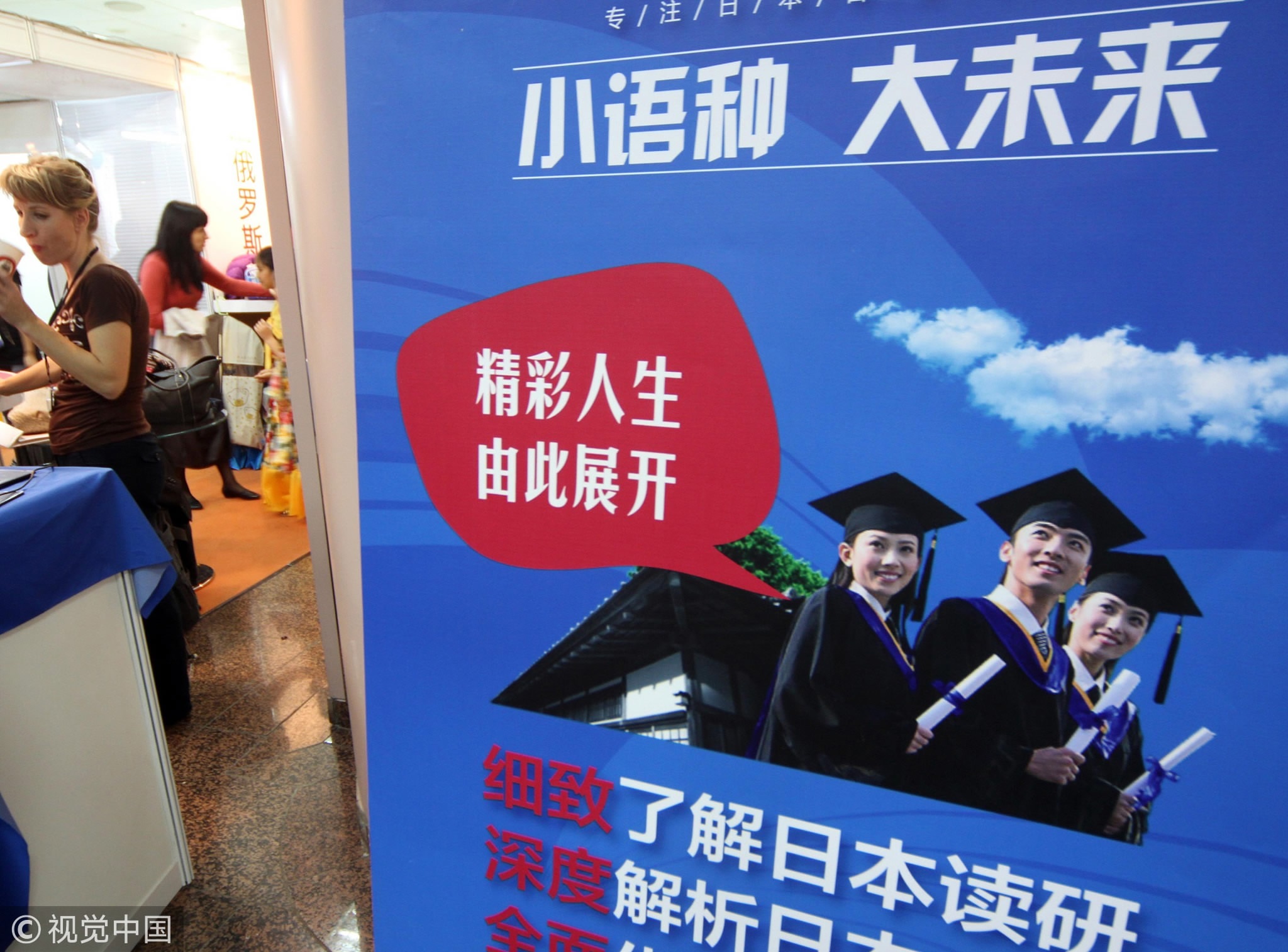
China
13:07, 19-Jan-2018
More foreign language options for high school students in China
CGTN

China’s educational authorities have issued new high school curriculum guidelines, giving students more flexibility and choice, while also putting greater emphasis on traditional culture and socialist core values.
Under the guidelines released by the Ministry of Education last month, German, French, and Spanish are recommended as new foreign language offerings, in addition to the existing options of English, Japanese, and Russian.
The new standards will come to effect this fall, aimed at improving the personal comprehensive ability of students. Although the change comes in the context of ongoing reforms to the National College Entrance Examination (or Gaokao in Chinese), its purpose is greater than simply helping students enroll at universities.
“Adding new languages to the list conforms to the trend,” Wang Zhan, one of the experts behind the guideline, told the Beijing News. Wang said these three languages are spoken frequently worldwide.
“They are useful for students in international exchange programs. We will offer more options based on student demand in the future.” Wang said.

More language options mean more posibilities for colleges. In 2013, Guang Ming High School in Shanghai started a French class and, because of this, the students will have a better chance of passing the language admission test and enrolling at the Esigelec Rouen, an engineering graduate school in France.
“I studied German in a class outside of school and chose it as a major in college. The high school experience really helped me lay a solid foundation,” said Li Jinke, who now works at a German company in Beijing. Li believes it will be a great help for high school students who aspire to study related majors.
Zhang Zhichao, a user on China’s Quora-like Zhihu, shared his opinion on “What is the current status of minor language teaching in high school in China?” Zhang attended Tianjin Xinhua Middle School, and there he studied French as an elective course for five-and-a-half years. “Although I majored in Economics at university, learning foreign culture really help me better understand the world and communicate with foreigners.”

“With economic globalization, more Chinese companies are starting to get involved in overseas investment projects. Cross-border e-commerce demands people who can grasp foreign languages other than English,” Xie Xiulan, the director of employment department of Guangdong University of Foreign Studies told the ycwb.com.
According to the employment report released by Shanghai International Studies University earlier this month, among all students graduated in 2017, majors of languages such as Russian, Portuguese and Arabic, have the highest employment rates, with some reaching 100 percent.

SITEMAP
Copyright © 2018 CGTN. Beijing ICP prepared NO.16065310-3
Copyright © 2018 CGTN. Beijing ICP prepared NO.16065310-3